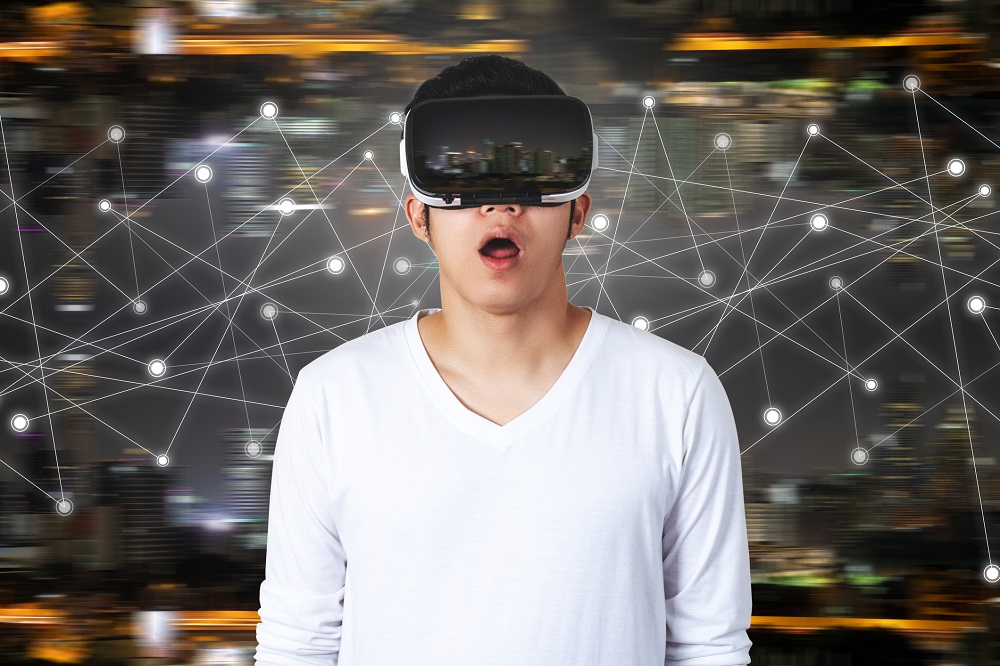Virtual reality (VR) is the hottest trend since sliced pixels, but amidst the hype, a tangled web of myths has emerged, blurring the lines between sci-fi fantasy and technological reality. Buckle up, digital explorers, because we're about to unravel the truth behind some of the most common VR myths, separating pixelated fiction from tangible facts.
The Matrix is Here_We are Trapped in the Simulation
Hold your red pill, Neo! While VR immersion feels real, it's no one-way trip to simulated reality. Our bodies crave the tangy bite of real-world apples, the crisp breeze on our skin. So, unless your headset hooks you up to a nutrient IV and brain interface, the real world will always be your home base.
Level Up, Noobs_ VR is Just for Gamers, Grown_Ups Get Out
Time to ditch the pixelated dragons and level up your expectations! VR's potential extends far beyond slaying digital monsters. Imagine stepping into immersive art galleries, exploring architectural marvels in 3D, or even undergoing realistic medical simulations. VR is poised to transform industries and redefine how we learn and experience the world, proving that adults can have serious fun in the virtual sandbox.
Brain Fry Alert_VR Will Melt Your Mind
Excessive VR use might leave your eyes a bit bleary and your head spinning, but fear not the brain melt! Research shows no evidence of long-term cognitive damage. Think of it like reading too much before bed; your eyes get tired, but the story won't permanently scramble your circuits. Just remember to take breaks and give your brain some fresh air.
The VR Shuffle is Real_ Get Ready for Awkward Locomotion
While current technology might restrict your virtual dance moves, researchers are tirelessly developing intuitive ways to move. From omnidirectional platforms to haptic feedback suits that mimic real-world sensations, soon virtual movement will feel as natural as strolling through the park (minus the sunburn, of course). Imagine gracefully pirouetting through digital landscapes – the future of VR locomotion is looking smooth.

Big Brother is Watching _ VR is a Mind Control Tool
Any powerful technology comes with the potential for misuse, but VR isn't inherently a villain. As with any innovation, responsible development and ethical considerations are crucial. Imagine VR as a powerful paintbrush; in the right hands, it can create breathtaking masterpieces, but in the wrong ones, it can paint a dystopian picture. It's up to us to ensure VR is used for good, not for ill.
VR discourages physical activity & replaces real-life experiences
This is a common myth surrounding VR. Maybe some people might not see how to fit a gym into their busy everyday lives, others tend to dread the idea of being inside a boring, uncomfortable-looking gym while counting off the minutest part of an exercise. VR technologies can solve this problem by providing users with a fun, immersive environment. They can virtually try skiing, climbing mountains and playing soccer, for instance. There are some ingenious apps such as Zombies, Run which transform the boring task of jogging or running on a treadmill into a lively, fun game (something straight out of a Hollywood blockbuster). As virtual reality provides ways to derive emotional and sensory satisfaction, it seemingly turns exercise into an enjoyable experience. As a result, it increases the user’s motivation to exercise frequently and regularly, rather than the opposite.
Virtual reality is a fad
When a new exciting technology hits the market, it draws a lot of attention. However, often such technology fades out after a while when consumers get used to using it. Unlike virtual reality, though, which was exactly that—a new, exciting technology that drew in a huge amount of attention. Now, it’s even been embraced by the biggest companies that are known for their innovative technologies.
Virtual reality costs more than it makes
Innovation comes at a substantial cost that doesn't pay off. It also doesn't provide non-financial advantages. Organizations that have sent off virtual reality projects, though, continue to receive significant returns. As an example; in the tourism sector, VR increases the prominence of tourist destinations by 5% to 10%. The educational VR experiences increase the number of users by 30% and so on in many other sectors.
Virtual Reality_Evidence from Research
Being a highly contentious topic of discussion, many researchers are motivated by VR technology to undertake their problem-solving investigations. Several of them provide an alternate perspective on the VR.
Debunking the myths is just the beginning
Dive deeper into specific VR applications with concrete examples. Explore the science behind the myths, citing research and studies. Offer readers resources for further exploration, directing them to informative websites and articles. Remember, engaging content and clear structure are key to ranking high in search results. So, grab your virtual shovel and start digging deeper!
This revised post expands on the previous suggestions, providing more detail, concrete examples, and calls to action to keep readers engaged and informed. By enriching the content and optimizing it for search engines, you can attract a wider audience and dispel VR myths more effectively.
For more information contact : support@mindnotix.com
Mindnotix Software Development Company


 AI-Taxi App
AI-Taxi App AI-Food App
AI-Food App AI-Property Mgmt App
AI-Property Mgmt App AI-CRM
AI-CRM AI-Fantasy App
AI-Fantasy App
 Web Development
Web Development App Development
App Development Business & Startup
Business & Startup Hire Developer
Hire Developer
 Digital Marketing
Digital Marketing Lead-generation
Lead-generation Creative Agency
Creative Agency Branding Agency
Branding Agency Augmented Reality
Augmented Reality Virtual Reality
Virtual Reality Internet of Things
Internet of Things Artificial Intelligence
Artificial Intelligence Blockchain
Blockchain Chatbot
Chatbot



